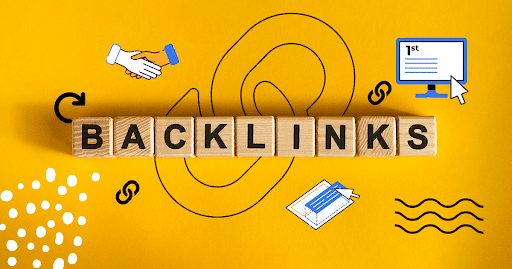In the realm of Search Engine Optimization (SEO), two key terms often surface in discussions: Google backlinks and Domain Authority (DA). Both play crucial roles in improving a website’s rankings in search engines, but they are often misunderstood or confused with each other. This comprehensive guide aims to clarify what each term means, how they work, and which one matters more when it comes to SEO.
1. What Are Google Backlinks?
Backlinks, also known as inbound links, are links from one website to another. When website A links to website B, website B earns a backlink from A. In SEO, backlinks are considered “votes of confidence” from one site to another. Google views backlinks as indicators of the value, relevance, and authority of a webpage.
Why Backlinks Matter:
- Backlinks help search engines understand the popularity and relevance of a webpage.
- Quality backlinks from authoritative sites can boost your search engine rankings.
Backlinks are part of Google’s PageRank algorithm, which measures the importance of webpages based on the number and quality of links pointing to them.
2. What Is Domain Authority (DA)?
Domain Authority (DA) is a metric developed by Moz that predicts how well a website will rank in search engine results pages (SERPs). DA is scored on a scale from 1 to 100, with higher scores indicating a better chance of ranking higher in the SERPs.
Key Factors Affecting DA:
- Linking Root Domains: The number of unique domains linking to your website.
- Total Backlinks: The overall number of backlinks your website has.
- Relevance and Quality of Links: The authority of the sites linking to you.
- Site Structure and On-Page SEO: The internal structure of your site and its technical health.
It’s important to note that DA is not a metric used by Google directly. It’s a third-party tool to estimate how competitive your site is in terms of SEO.
3. How Google Backlinks Work
Google uses backlinks to evaluate the trustworthiness and relevance of a webpage. If several authoritative sites link to your content, it sends a signal to Google that your content is valuable and trustworthy.
Backlinks are evaluated based on:
- Quality of the linking site: A backlink from a high-DA or high-authority site carries more weight than one from a low-DA site.
- Relevance: Links from sites related to your niche or industry are more valuable.
- Anchor Text: The clickable text in a hyperlink. Relevant keywords in anchor text can help improve rankings.
4. How Domain Authority Works
Domain Authority works on a logarithmic scale, which means that moving your score from 20 to 30 is easier than moving from 70 to 80. The score considers both quantity and quality of backlinks and aims to give a realistic projection of how well your site will perform in SERPs.
Moz’s DA Calculation Factors:
- Linking root domains.
- Total number of links.
- MozRank (link popularity) and MozTrust (link trustworthiness).
- The site’s age, social signals, and other factors.
5. Backlinks vs. Domain Authority: The Key Differences
While backlinks are actual links from one website to another, Domain Authority is a predictive score. Backlinks directly influence your Google rankings, while DA is an indirect indicator of your site’s potential to rank well based on its backlink profile and other factors.
| Factor | Google Backlinks | Domain Authority (DA) |
| Definition | Links from one website to another | A score predicting a site’s ranking potential |
| Impact on SEO | Direct influence on rankings | Indirect prediction of rankings |
| Controlled By | Moz | |
| Main Influence | Quality and relevance of links | Backlink profile and site health |
| Measurable By | Google Search Console, Ahrefs, SEMrush, etc. | Moz, other third-party tools |
6. How Google Uses Backlinks for Ranking
Backlinks help Google assess how authoritative and relevant a webpage is. Google considers:
- Number of linking domains: More unique domains linking to a page are generally better.
- Authority of linking domains: A link from a high-authority website is more valuable.
- Relevance of linking pages: Links from sites in the same industry carry more weight.
- Anchor text: Relevant, keyword-rich anchor text helps clarify the topic of the linked page.
7. How DA Impacts Your SEO
DA does not directly impact your SEO because it is not a ranking factor used by Google. However, a high DA often correlates with strong backlink profiles, which do impact SEO. A site with a high DA is likely to have numerous quality backlinks, indicating to Google that it’s a trustworthy, authoritative site.
8. How to Get High-Quality Backlinks
- Create Valuable Content: High-quality, informative, and unique content naturally attracts backlinks.
- Guest Posting: Writing articles for authoritative websites in your niche can earn you backlinks.
- Broken Link Building: Find broken links on authoritative sites and offer your own content as a replacement.
- Influencer Outreach: Build relationships with influencers who might link to your content.
9. How to Improve Your Domain Authority
- Build High-Quality Backlinks: Focus on earning links from authoritative, relevant sites.
- Improve Site SEO: Ensure your on-page SEO is optimized, from internal linking to meta tags and load speed.
- Create Shareable Content: Engaging content like infographics, case studies, and in-depth guides can attract links.
10. Google’s Perspective: Does DA Matter?
Google does not use Domain Authority as a ranking factor. DA is purely a third-party metric designed by Moz. Google focuses on backlinks, user experience, and hundreds of other factors to rank websites.
11. The Importance of Relevance in Backlinks
Not all backlinks are created equal. Backlinks from relevant websites carry more weight in Google’s algorithm than links from unrelated sites. For instance, if your website is about fitness, backlinks from health blogs, fitness forums, and personal trainer websites will benefit your rankings more than links from unrelated industries.
12. Which Is More Important: Backlinks or DA?
When it comes to SEO:
- Backlinks have a direct impact on rankings.
- DA is a useful indicator but is not used by Google.
Therefore, backlinks are more important in SEO. However, working on improving your DA through building a strong backlink profile can indirectly improve your rankings.
13. How to Monitor and Measure Backlinks and DA
- Google Search Console: Monitor backlinks directly reported by Google.
- Ahrefs, SEMrush: Use these tools to analyze backlinks, referring domains, and anchor text.
- Moz: Measure your Domain Authority and track its changes over time.
14. The Role of Content in Backlinks and DA
Content plays a critical role in attracting backlinks and improving DA. High-quality, relevant content will naturally attract more backlinks, which in turn can help boost your DA. A robust content marketing strategy is essential for long-term SEO success.
Also Read: The Role of SEO in Affiliate Marketing
15. Conclusion
When comparing Google backlinks and Domain Authority, it’s clear that backlinks hold more weight in directly influencing search engine rankings. While DA is a helpful indicator of your site’s SEO potential, it’s the quality and relevance of your backlinks that will ultimately drive your search rankings. Focus on earning high-quality backlinks, creating great content, and improving your site’s technical SEO to see the best results.
Read Next: The Impact of Core Web Vitals on Your SEO Rankings




